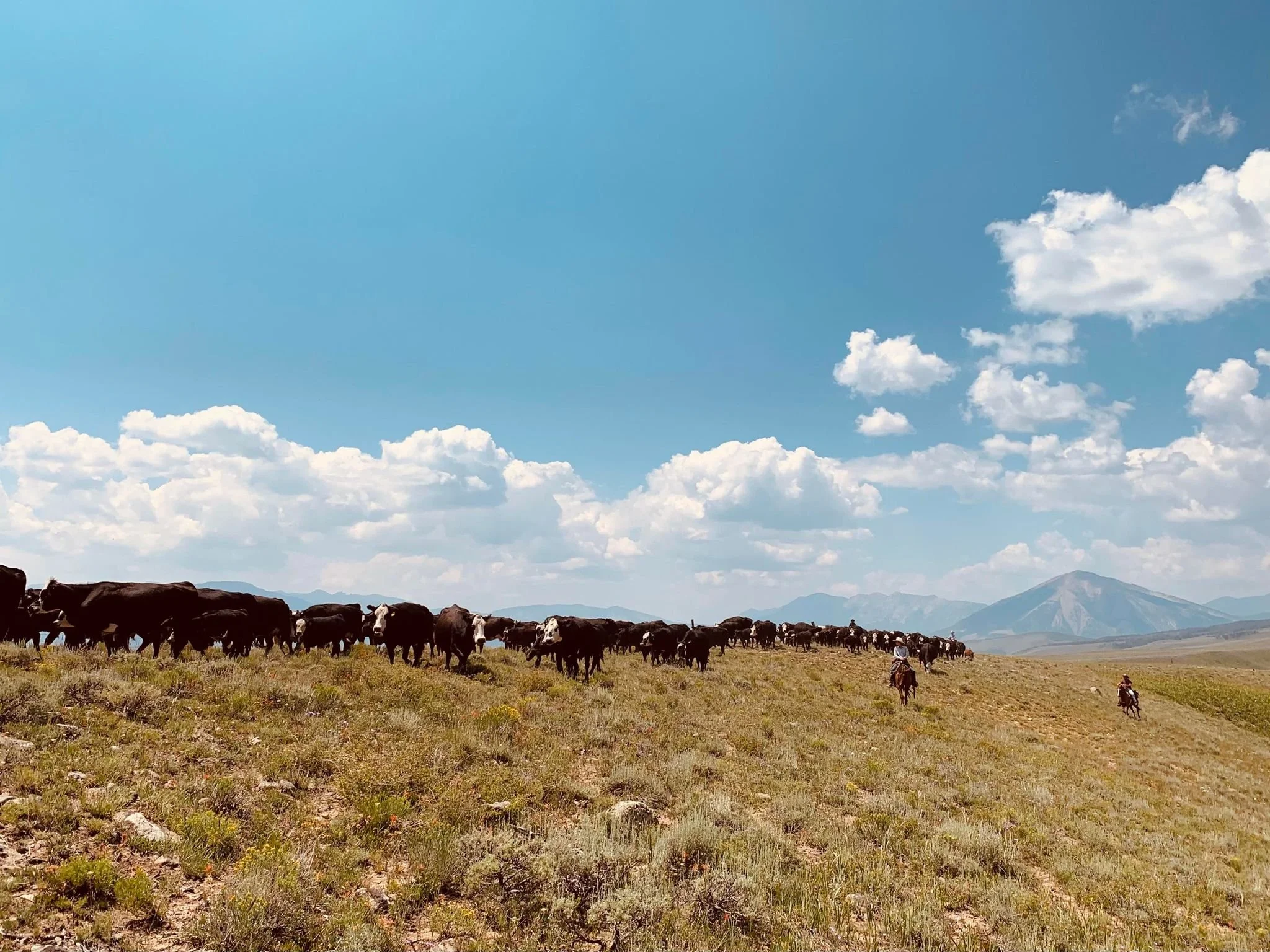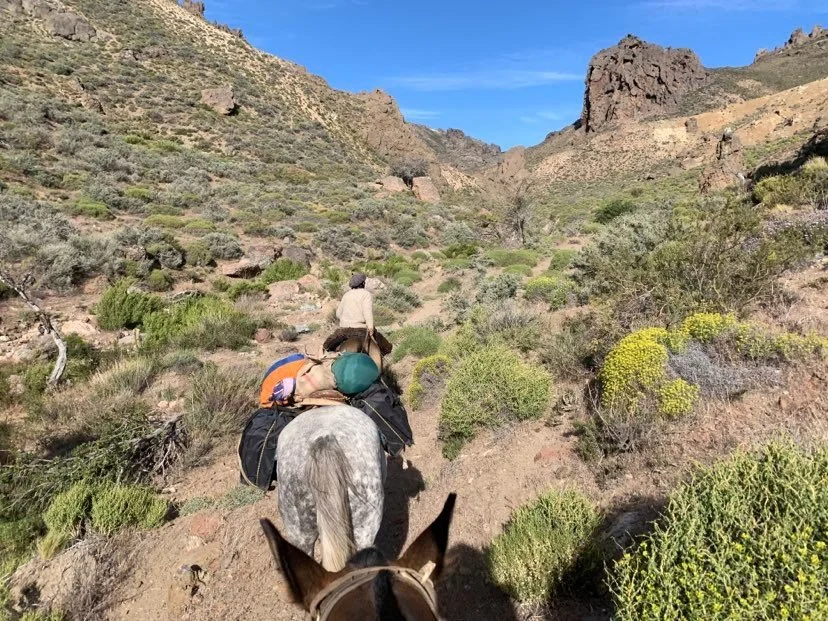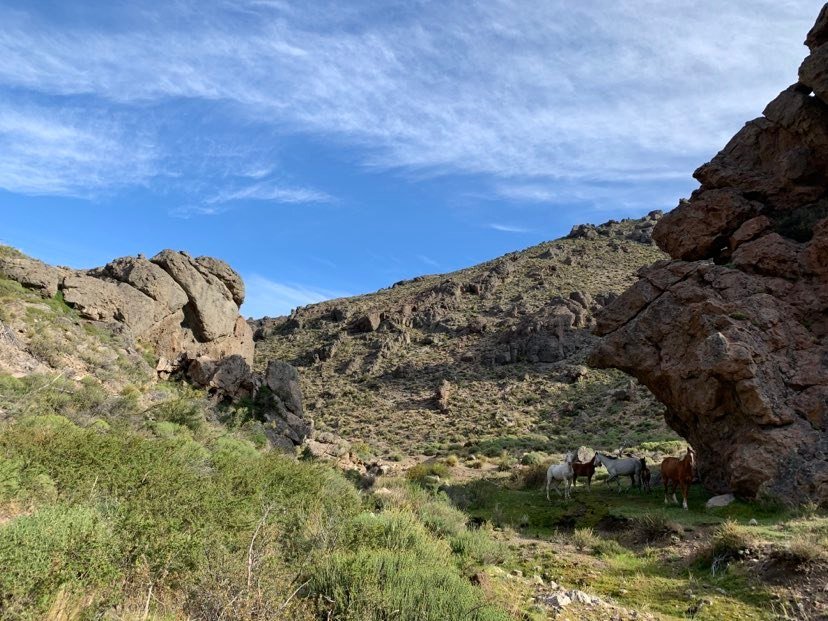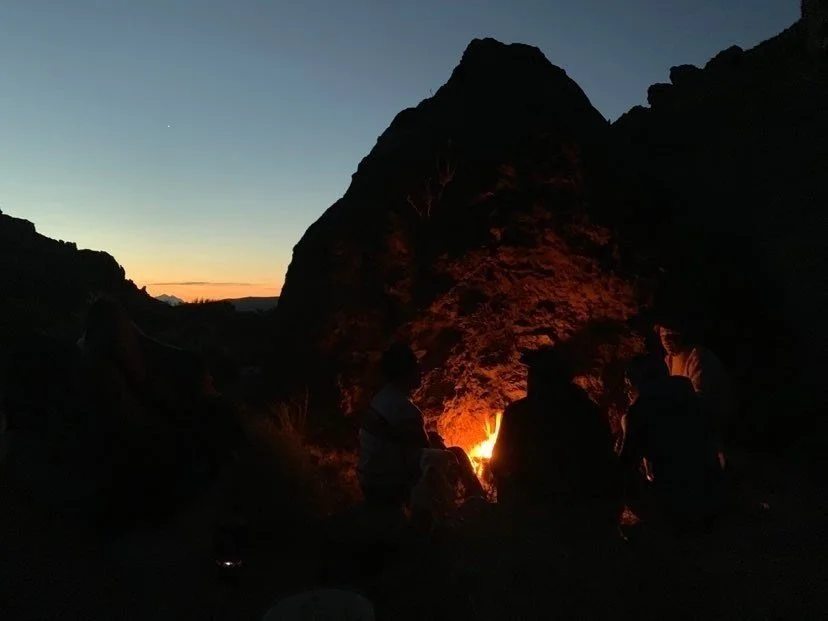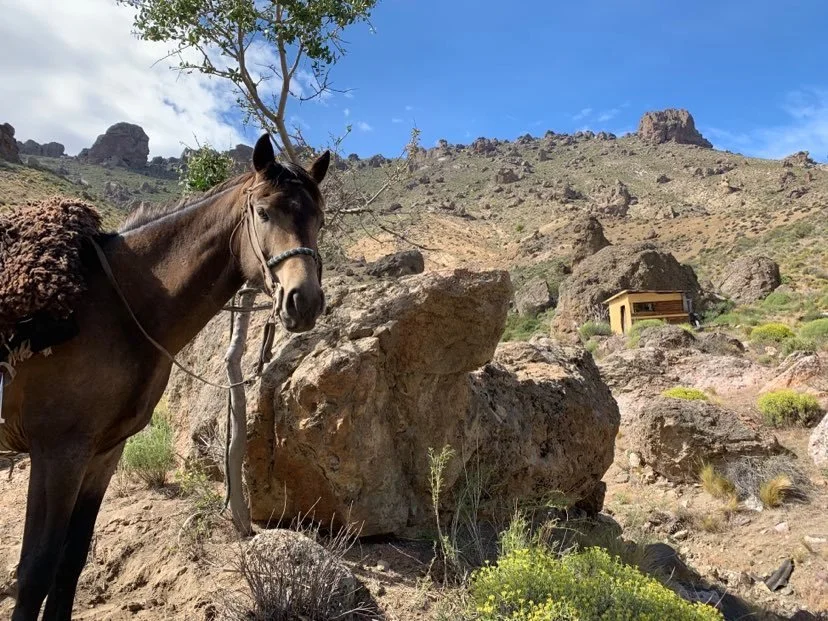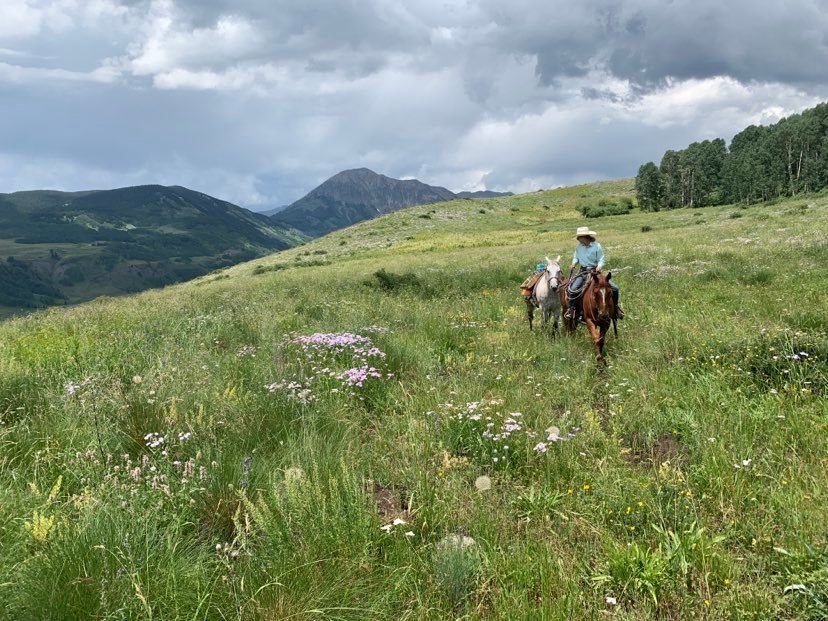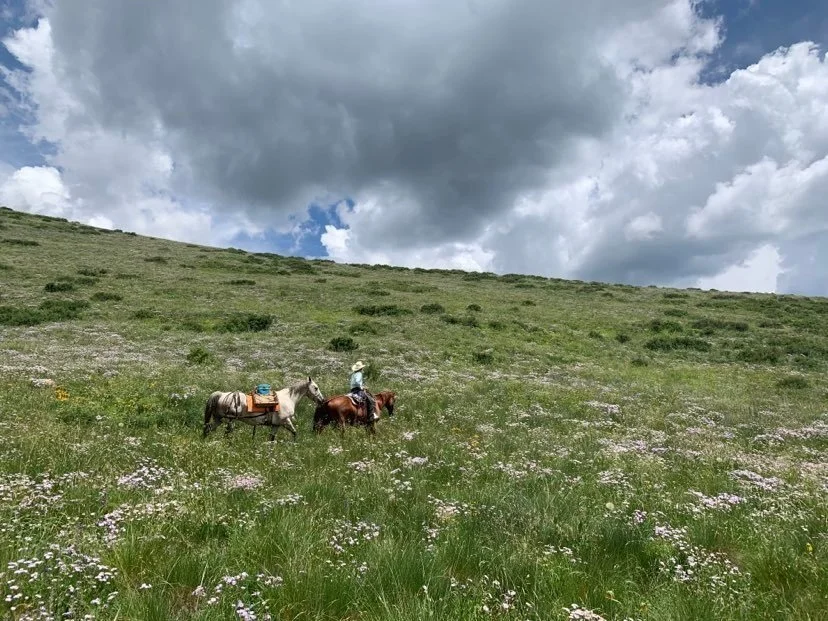We had no destination in mind our final night in the estepa. Friends from Alaska, Nat and Emily, had come down to Argentina to spend an entire month adventuring for their honeymoon. At news of their upcoming trip I wanted to offer up my horses to do a four day pack trip to explore potential new places to take clients. (Pre COVID) Friends make the best guinea pigs!
While stopped for lunch at a little creek we came across a women descending a trail cut across thick rock by horseback. Ricardo, a local gaucho, approached the women along the trail in hopes that she might invite us over for mattes (a cultural tea drank through a straw) and torta frittas (fried bread). She sat on a big heavy boned buckskin horse, dressed in a bright red poncho and wore a small brimmed sun-bleached hat, a loaded packhorse in tow. Her daughter, in her teens maybe, was on foot behind them. Her skin was dark, and wrinkles set deep in her face. She stood a safe distance atop her mount. We wondered amongst ourselves what might have been said, the encounter seemed very brief and distant.
Ricardo came back and told us the women didn’t speak Spanish very well and that she had seemed frightened of him. He assumed that she was Mapuche, an Indigenous group that still inhabits parts of Chile and Argentina. He expressed that she seemed a little salvaje. Wild.
Not long after a man in a bright wool sweater came walking through the high brush on the trail towards us. Immediately he greeted us with a broken smile, half gums and half teeth. His skin was dark like the woman before and his eyes were round and clouded over, like a fog in full moonlight. His name was Julio. He was the cousin of the older women who we’d just passed. When Ricardo asked of places to stay nearby with enough feed and water for our horses, Julio offered the land near to him. There was a spring there where he got his water and a little feed close to the nearly dried creek.
We entered the valley in awe of our surroundings. The landscape from a distance seemed uninviting, not unlike the woman on the trail. All the brush, shrubs, and even the dirt under our feet were parched. Everything you touched responded with a harshness; trying to poke, prod, or puncture your skin. Yet the deeper we dove into this little narrow canyon the more small pockets of green forage grew around every corner. Giant rocks spired up above the Earth, peering down at us at we rode by. The larger the rocks became the more holes, outcroppings, and small caves we could see from a distance. A band of horses with a foal watched us curiously from around a corner before taking off at a trot up toward the canyons walls.
We rode past Julio’s shack, a single room with one single window, the wood painted pale yellow against the gargantuan rocks. We passed tiny purple flowers that let off a fresh, crisp, summer scent. As the canyon walls narrowed and darkened we noticed a small handmade cross sitting beneath a lonely tree. Our eyes glanced from the cross and up into the rocks above us. There was a large outcropping in the rocks and some makeshift shelter. The cave had been hidden mostly by piles of scrap wood from the canyon and placed strategically side by side, vertically, to create some sort of wall-like structure. I looked at it in admiration. My younger self would have thought I had stumbled upon a play place jackpot compared to the makeshift forts we scrambled together in our horse meadow next to the house.
That evening we unsaddled our horses near the spring and let them graze after a long, hot, day of riding. We built a fire and invited Julio to join us for dinner. We sat and listened to his stories of this place he called home, pouring the last of our wine and passing mattes between the five of us.
Julio spoke of this valley and how it belonged to his family, they were in fact mapuche. He talked about the rocks, the caves, the wildlife, and streams in such a way, if a passerby had heard him, one might think he was talking about friends. I have never heard anyone since speak of a place with such fondness.
The cave we had passed earlier that evening wasn’t a fort, like l had imagined, it was once a home. It was where Julio grew up. He said the walls were covered in stucco and the floor, which had since rotted, was made of the same wood that held the walls together. He laughed when he talked about his father, who’s cross we passed, the first time the wood had rotted and he fell straight through the floor.
We were the first people Julio had seen all summer. To no surprise, he didn’t get many visitors in this little oasis of a canyon. He was grateful for the shared meal, laughter, and company but talked immensely about the great amount of peace he felt in the solitude of his home; in the familiarity. It was beautiful to witness.
Whenever I look back on this memory I share in the fondness Julio spoke about all that night. I see the stars bright against the dark night sky peering down on me as I fell sound asleep next to the stream atop my sheep skin saddle blanket. I hear the horses feet moving against the brush grazing slowly and peacefully through the night. The outcropping of rocks that towered above us as we rested, guarding us as we dreamt.
Whenever i am out in the mountains and I come across the feeling of monotony I think back to Julio and am reminded of how special it is to know a place like a friend. It reminds me to seek out changes in the little things, like the way the range changes each season, the smell of sage after a hard mid-summer rain, or a bear as it passes cautiously through the willows. How peaceful, grateful, and understanding would we be if we all had the opportunity to live that simple of a life like Julio?
